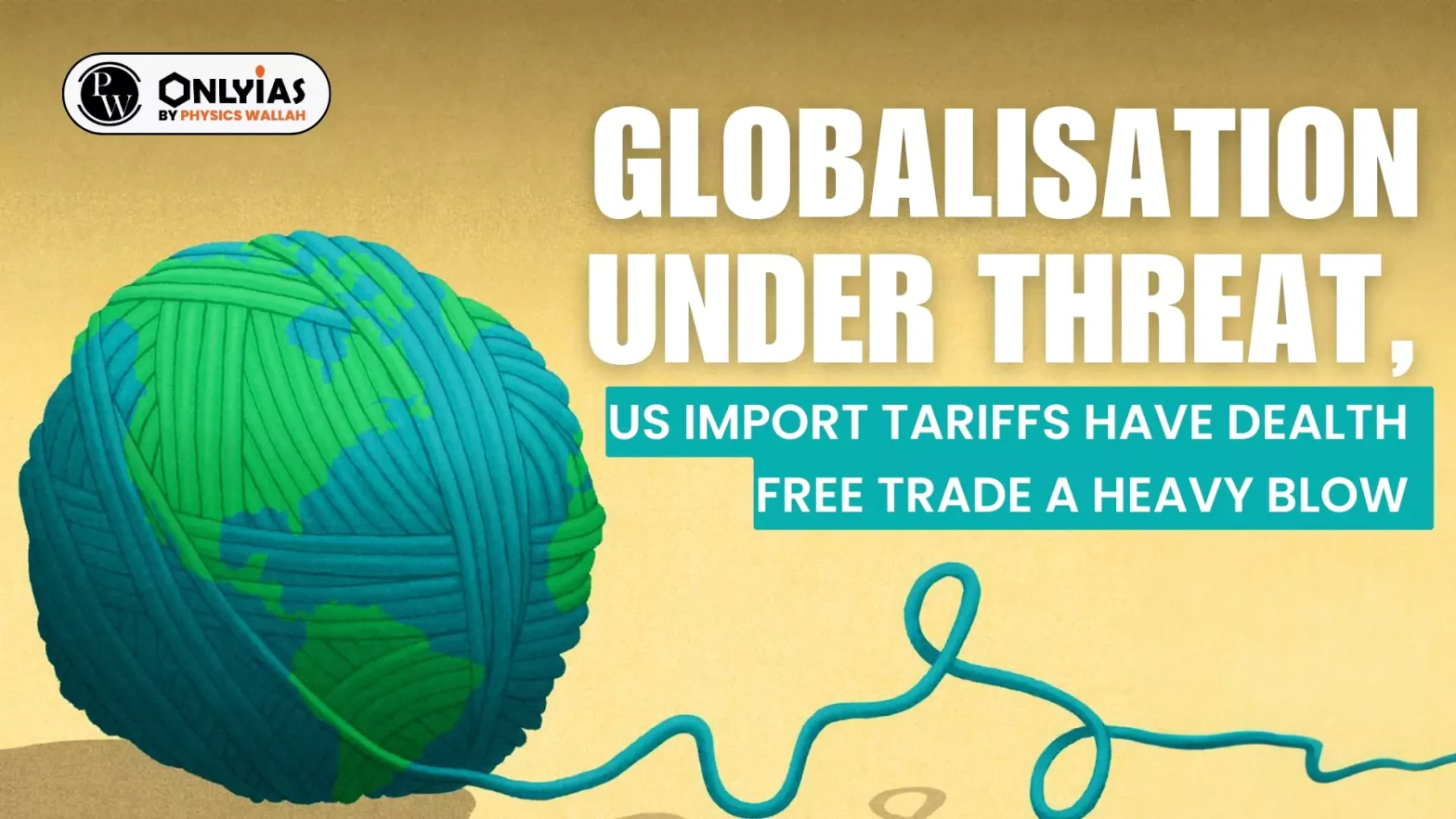Context
Recently, US President Joe Biden directed the office of the US Trade Representative (USTR) to increase tariffs on $18 billion worth of Chinese imports.
Undermining of Free Trade Principles
- Impact of Protectionism: The former US president initiated a trade war with China in 2018 by imposing tariffs to protect American jobs. This move benefited US metal manufacturers but negatively impacted consumers.
- Punitive Duties against Chinese goods: The current US president has intensified trade barriers, increasing import tariffs on Chinese electric vehicles from 27.5% to 102.5%, while also imposing punitive duties on lithium batteries, computer chips, critical minerals, solar cells, and other goods.
- Global Implications of Protectionist Policies: What exacerbates the situation is not just its populism, fueled by the prevalent rhetoric in US politics about jobs lost to authoritarian China, or the inevitable distortion it will cause in user markets. It’s the message it sends globally.
- Abandonment of Free Trade Leadership: With bipartisan support for this age-old policy tool, America unmistakably relinquishes its position as the leading advocate of free trade.
- Justification of National Security: Though justified under the guise of “national security” – a common loophole sought from WTO regulations – and in response to Beijing’s “unfair” subsidies for clean-tech, which ostensibly benefit the planet despite undercutting US businesses, the move signifies a significant shift in global trade dynamics.
Enroll now for UPSC Online Course
Threat to Free Trade
- Using Trade as a Weapon: America’s expressed intent to boost imports from other nations, potentially benefiting India, doesn’t mitigate the impact of its anti-China stance, which not only embraces protectionism, leading to increased costs, but also escalates trade as a weapon.
- Historical Lessons: This contradicts the principles advocated by economics, climate advocates, and proponents of geopolitical pacifism.
- History reminds us that severing trade connections has precipitated conflicts, as witnessed a century ago
- Political Motives in Trade Policies: There’s a looming risk of history repeating itself, with the US dealing another blow to free trade, motivated more by political objectives than economic rationale.
- Resilience of Free Trade Rationale: Despite the setback, free trade is underpinned by a rationale resilient enough to withstand challenging geopolitical circumstances.
- Key to Economic Efficiency: Analogous to Adam Smith’s pin factory illustration, wherein specialization enhances productivity with fewer resources, an economy characterized by healthy competition and specialization fosters efficiency and prosperity.
- Efficiency in Unrestricted Global Markets: Similarly, in an unrestricted global market, the dynamics of supply and demand would drive efficiency on a global level, with competition driving costs down and value creation up.
- Relative Advantage in Trade: Theoretically, producers need only a relative advantage to specialize profitably, making trade advantageous for all participants, even if some lag behind others in certain areas.
- Challenges to Barrier-Free Trade: However, the reality falls far short of this ideal of barrier-free trade.
- In the United States, concerns about job outsourcing to low-cost factories elsewhere, coupled with anxieties surrounding a new Cold War, have led to a narrow focus in policymaking, resulting in dimmer prospects for all.
Navigating Dumping and Geopolitics in Trade
- US Barriers Prompting Chinese Dumping: Steep US barriers may tempt China’s state-subsidized manufacturers to dump stuff in India, perhaps partly for re-export to America.
- Challenges of Detecting Dumping: Products sold below their cost of production are deemed to have been dumped, and given Chinese opacity, this violation of trade rules isn’t easy to catch. Still, faced with cheap shipments, we must not let geopolitics trump economics.
Recommendations For India
- Balancing Economic Considerations: While New Delhi may also be considering measures to reduce Chinese imports and capitalize on export opportunities, it’s essential not to disregard economic rationale.
- Benefits of Affordable Chinese Clean-Tech: Affordable Chinese goods, particularly in clean-tech sectors, have the potential to bolster not only the growth of our economy but also our environmental objectives.
Enroll now for UPSC Online Classes
Conclusion
Ultimately, fostering an environment conducive to open and fair trade is essential for promoting economic growth and prosperity for all nations involved. It requires a concerted effort to uphold the principles of free trade while addressing legitimate concerns and challenges in the global economic landscape.
![]() 17 May 2024
17 May 2024

